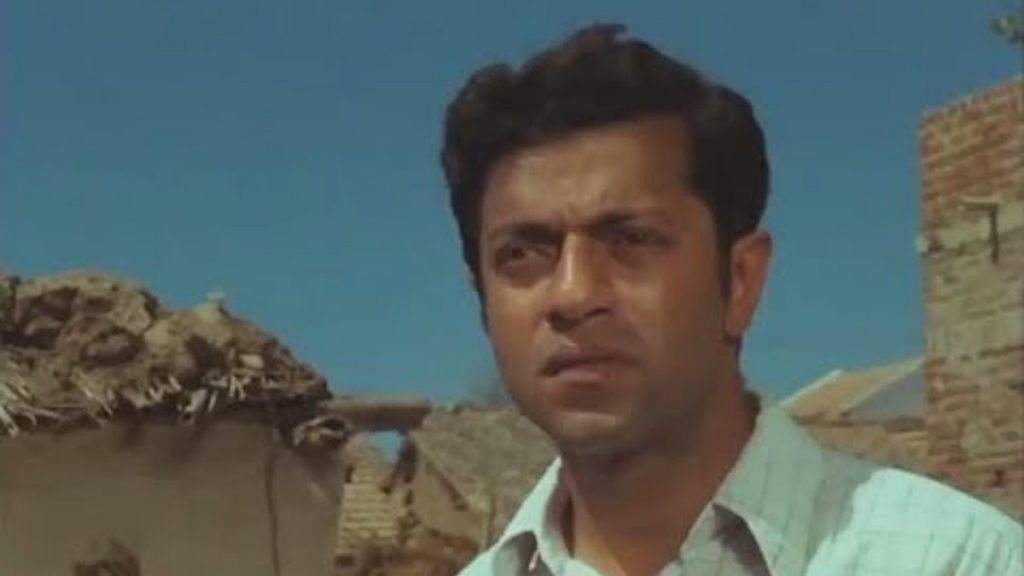Playwright, director and actor, Girish Karnad passed away this week, at 81. His body of work as a filmmaker and actor helped mould the Indian parallel cinema movement. In memory of the great artist, ThePrint looks at one of his classic films, 1976’s Manthan.
The story, inspired by Verghese Kurien, the father of the White Revolution, follows a young doctor, Dr Rao (Karnad), who is posted to a village in Gujarat to help them set up a co-operative society to sell their milk. The villagers, half of whom are Dalits, sell their milk to Mishraji(Puri), who cheats them by paying them only a rupee for a litre of milk. The doctor and his team of three other men, come and disturb the status quo by showing the villagers that they can get more for their milk by forming a co-operative and selling to the government, instead. This is obviously met with a lot of mistrust and scepticism from all sides — the Dalits are afraid the society will be usurped by the upper caste villagers, Mishraji is afraid he’ll lose power, and the sarpanch, an upper-caste man wants to use this to win in the upcoming elections. Not to mention, the villagers are too used to the entrenched power-structure to stand up on their own two feet. Dr Rao and his team break through this structure, despite many obstacles.
Also read: Mumbai horse racing & Amul girl as jockey – how an ‘utterly butterly’ idea kicked off
Manthan is not a simplistic do-gooder story about rescuing a village with new ideas. The film is beautifully layered, with multiple facets of caste, gender, privilege, and ethics and morals that come with doing ‘good’. Girish Karnad plays the educated, high-society man of science, who comes to enlighten the villagers. His intentions are completely good and pure, but he carries the baggage that comes with being a privileged man. He befriends, Bindu (Patil), a headstrong single mother, who develops feelings for him. However, she is conflicted as she is of a ‘lower’ caste, not to mention the fact that the doctor is married. Dr Rao and his team face false accusations and village politics while trying to grapple with their own idealistic ways of thinking.
Shyam Benegal does a masterful job of bringing out the various shades of human interactions and societal restrictions that are usually so subtle that we, the privileged class, tend to forget that they exist. Although the story arch is filled with despair and hopelessness in many ways, the final triumph of education and the human spirit comes through and your faith in the possibility of change is restored. Naseeruddin Shah, who plays a Dalit character called Bhola, shines through the rest and moves you with his performance, reminding you why he’s such a celebrated actor.
In many ways, Girish Karnad embodied a lot of the values Dr Rao displays in the film. He was staunchly anti-caste, and was very involved in fighting social evils till his last days. So, what better way to remember the great actor than to watch this masterpiece and remember the importance of believing in change.
Also read: Girish Karnad’s last work was an unfinished autobiography in English
